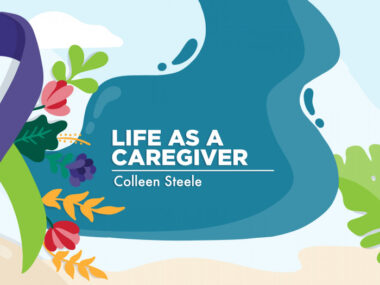What I Wish People Knew About My PH Journey
Written by |

“What’s the one thing you wish people knew about your transplant journey?”
It’s one of the most thoughtful and thought-provoking questions I’ve ever been asked. It was posed to me six months after the momentous discharge that followed my traumatic heart-lung transplant. I remember looking up at my friend over a shared pizza, one of my first casual social outings since receiving the lifesaving call 14 months prior.
I didn’t know how to respond. I ended up rambling for a bit about how my rib cage and chest were numb. How people told me my feeling would return eventually, but it never did, something that didn’t bother my doctors in the face of my many other issues. But for me, it remained a reminder of the deeper nerve damage that led to so many complications and unexpected outcomes.
The true response to this question is constantly evolving. I imagine it will continue to transform along with me for the rest of my life. But if I rework the question around the illness that plagued me for 19 years prior — “What’s the one thing you wish people knew about your journey with pulmonary hypertension?” — my answer is much clearer.
I wish people knew how it shaped nearly every aspect of my life, how the consequences of existing in a body with pulmonary hypertension (PH) wrapped around so many moments and thoughts.
I could offer countless examples, but a few stick out. To start, spending 19 years dependent on IV medication resulted in me developing “beep anxiety.” Yes, I made that term up. But it’s something close friends and family will attest to. Any time there was an unidentified beep in any given environment, my stomach would drop, and I would quickly sneak a look at the small device tucked in my waistband.
If it was my pump beeping, it could mean that I had a blockage in my central line, or a malfunction in the mechanics of the device, preventing my lifesaving medication from being delivered. Anyone who has been treated with Flolan (epoprostenol GM) or Remodulin (treprostinil) will tell you that in these cases, the time to act is very short. For much of my life, I felt instant terror any time I heard a beep.
Another constant threat that sat in my mind most days was the risk of stroke. This one is a bit confusing even to me, since I don’t think anyone ever actually told me this fact. But I knew I was at risk for blood clots, and I guess it wasn’t hard for me to make the connection.
I would often begin to panic if my fingers went numb, or if something felt even a little off on one side of my body. In these events, I can recall closing myself in the bathroom to raise both eyebrows in the mirror and check that my smile lifted evenly. Admittedly, being a nursing student through the worst years of my illness could have possibly fueled a bit of over-informed paranoia.
Similarly, any time I coughed, I would check the back of my throat with a flashlight for blood, as my greatest fear was hemoptysis. Typing all of this now, some of it seems absurd, and it’s difficult to truthfully convey how real these moments were.
Beyond these specific examples, I’d like people to understand that, especially in the later years of my illness, I lived constantly on the edge of believing that something terrible was about to happen. It was tremendously exhausting to experience this every day.
While I’ve talked about some of the more mental, hypothetical battles that weighed on me, PH of course caused very tangible annoyances. From severe bloody noses that needed to be painfully packed in the ER at 2 a.m., to my constant worry about accessible parking options, PH was stubbornly present in my day-to-day life.
During those 19 years, I was so much more than my illness. But that doesn’t mean that my illness didn’t greatly inform the person I became. It’s so important for me that people understand the underlying effort, struggle, and consequence that came along with it. People can more easily imagine managing medications and dealing with symptoms like shortness of breath. But the nuances and the long-term mental wear of a serious illness can often be left unknown.
This will always be one of the best questions I’ve been asked, and I invite you to offer it up to anyone in your life who is dealing with any sort of struggle.
“What do you wish people knew? Help me understand. I’m here to listen.”
***
Note: Pulmonary Hypertension News is strictly a news and information website about the disease. It does not provide medical advice, diagnosis, or treatment. This content is not intended to be a substitute for professional medical advice, diagnosis, or treatment. Always seek the advice of your physician or other qualified health provider with any questions you may have regarding a medical condition. Never disregard professional medical advice or delay in seeking it because of something you have read on this website. The opinions expressed in this column are not those of Pulmonary Hypertension News or its parent company, Bionews, and are intended to spark discussion about issues pertaining to pulmonary hypertension.





HAROLD WORKMAN
I have PAH and recently returned home from Pneumonia. Did an additional 3 days of antibiotics and was doing good. Suddenly I have to be on 7 liters of oxygen to maintain a saturation level of 88. Feel a bit of tightness in my chest. Is artery from the heart to lungs finally closing out? My Pulmonologist won't be available to Monday. Was diagnosed in May of2017 and have been on oxygen 24/7 since.